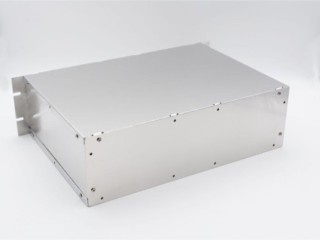Pelvic Floor Physiotherapy and Pelvic Floor Dysfunction: Research and Evidence
3 months ago Services Edmonton 66 views Reference: 18861Location: Edmonton
Price: $3,000
Pelvic floor dysfunction (PFD) affects millions of people worldwide, leading to discomfort, pain, and functional issues. Fortunately, pelvic floor physiotherapy has emerged as an effective, evidence-based treatment for addressing PDF, improving quality of life for those affected. At Next Step Physiotherapy , we specialize in Pelvic Floor Physiotherapy Edmonton, using the latest research to guide personalized treatment plans for our patients.
Understanding Pelvic Floor Dysfunction
Pelvic floor dysfunction occurs when the muscles in the pelvic area are either too tight, too weak, or poorly coordinated. These muscles play a critical role in bladder and bowel control, sexual function, and supporting pelvic organs. When they don’t function properly, symptoms such as urinary incontinence, pelvic pain, constipation, or sexual dysfunction can arise.
Pelvic floor dysfunction can occur due to a variety of reasons, including pregnancy, childbirth, aging, surgery, or trauma. While both men and women can experience PFD, it’s more common among women, especially following childbirth or menopause.
At Next Step Physiotherapy, we use a comprehensive assessment to identify the specific dysfunctions affecting each patient. Our highly trained physiotherapists then design a personalized treatment plan based on the latest research and clinical evidence to address those needs.
Research Supporting Pelvic Floor Physiotherapy
Numerous studies have demonstrated the effectiveness of pelvic floor physiotherapy for a variety of conditions, especially urinary incontinence and pelvic organ prolapse. In fact, pelvic floor muscle training (PFMT) is widely recognized as the first-line treatment for these issues.
A landmark study published in The Lancet found that women who participated in pelvic floor muscle training were significantly more likely to report improvement in urinary incontinence compared to those who received no intervention. The study highlighted that supervised, tailored programs are key to achieving the best outcomes.
For conditions like pelvic pain or hypertonic pelvic floor dysfunction (where the muscles are too tight), research has shown that manual therapy, relaxation techniques, and biofeedback can significantly reduce pain and improve muscle coordination. A systematic review published in the Journal of Women's Health Physical Therapy found that these interventions resulted in a 77% improvement in pelvic pain patients.
Evidence for Specific Conditions
Urinary Incontinence
Research shows that pelvic floor physiotherapy can significantly reduce or eliminate urinary incontinence in women, particularly stress urinary incontinence, which occurs during activities like coughing or running. A 2018 Cochrane Review concluded that pelvic floor muscle training provides better short-term and long-term relief from stress incontinence compared to no treatment.
Pelvic Organ Prolapse
Pelvic organ prolapse (POP) happens when the pelvic organs drop from their normal position, often due to weakened pelvic floor muscles. Pelvic floor physiotherapy has been shown to be an effective, non-surgical treatment option. A study in Neurourology and Urodynamics revealed that women who engaged in PFMT experienced reduced symptoms and improved quality of life in relation to prolapse.
Chronic Pelvic Pain
Chronic pelvic pain is often linked to tight, overactive pelvic floor muscles. Studies suggest that manual therapy, biofeedback, and breathing exercises can lead to significant pain relief. At Next Step Physiotherapy, we use a combination of these therapies to relax the pelvic muscles and relieve pressure on the surrounding tissues, alleviating pain.
Next Step Physiotherapy’s Approach to Pelvic Floor Dysfunction
At Next Step Physiotherapy in Edmonton, our approach to treating pelvic floor dysfunction is grounded in evidence-based practices. We combine manual therapy, exercise prescription, biofeedback, and patient education to deliver comprehensive care. Our physiotherapists stay current with the latest research and continuously adapt treatment protocols to ensure optimal results for our patients.
We believe that a personalized, patient-centered approach is key to overcoming PFD. By empowering patients with the knowledge and tools to manage their symptoms, we aim to improve their long-term pelvic health and quality of life.
Conclusion
Pelvic floor physiotherapy is a proven, effective treatment for pelvic floor dysfunction, backed by extensive research and clinical evidence. At Next Step Physiotherapy, our team is dedicated to helping patients regain control over their pelvic health through personalized, research-based care. Whether you’re dealing with incontinence, prolapse, or pelvic pain, physiotherapy offers a pathway to recovery and improved well-being.
https://tinyurl.com/p5ufd7yw , (587) 853-0878
#pelvicfloorphysiotherapyedmonton #physiotherapyexperts #pelvicfloorphysiotherapy #pelvicfloorphysiotherapynearme #pelvicfloortherapyedmonton #physiotherapynearme #physiotherapyedmonton #physicaltherapyedmonton #physicaltherapynearme #physicaltherapy #nextstepphysiotherapyedmonton #physicaltherapist #physiotherapyclinic #physioclinicedmonton




















































